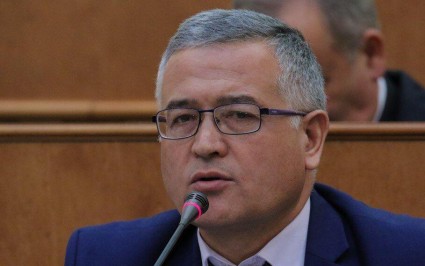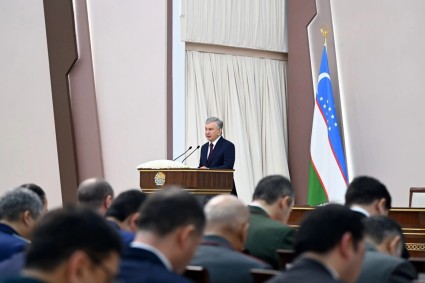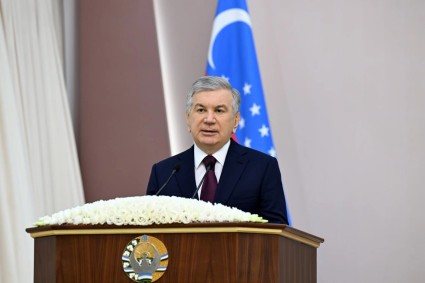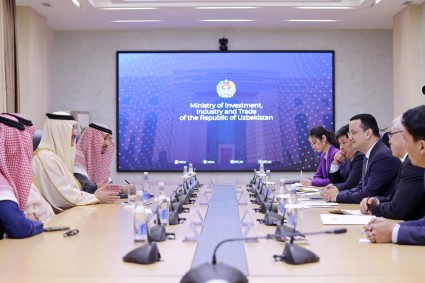IFC announced today a $240 million Islamic Equity Bridge Loan (EBL) financing for ACWA Power to support the development of Uzbekistan's renewable energy sector on the sidelines of the 8th Future Investment Institute conference in Riyadh in Saudi Arabia.
IFC’s financing will support the construction and operation of two projects, with a cumulative capacity of a 1-gigawatt solar PV plant, a 668-megawatt Battery Energy Storage System (BESS), and approximately 500 kilometres of high-voltage transmission lines. This is expected to mark a major milestone in Uzbekistan’s clean energy transition and reduce GHG emissions by an estimated 1.3 million tons of CO2 annually. Once operational, these renewable projects are expected to generate approximately 2,400 gigawatt hours of electricity annually.
ACWA Power, which is leading the development of this project, was founded in the Kingdom of Saudi Arabia and has evolved progressively into a leading power and water company with operations in 13 countries and a growing pipeline of new projects both in Saudi Arabia and globally. As the world's largest private company in water desalination, an energy transition leader, and a first mover into Green Hydrogen, ACWA Power continues to set benchmarks in sustainable development.
“IFC's strategic partnership with ACWA Power underscores the robust confidence that multilateral development finance institutions have in our credit standing and Saudi Arabian corporates in general. This watershed transaction will anchor ACWA Power’s ongoing energy transition drive to renewable energy in critical frontier markets like Uzbekistan, and in turn solidifies our status as a global leader in sustainable energy” stated Abdulhameed Al Muhaidib, Chief Financial Officer of ACWA Power.
Al Muhaidib further emphasized, “We are honored to collaborate with IFC on this transformative project in Uzbekistan, which embodies our shared vision of advancing sustainable energy solutions. This initiative is set to establish a new standard for cross-border ACWA Power recourse funding support, and in turn effectively addressing energy demands while championing environmental sustainability.”
The $240 million financing is structured as an Islamic Finance Murabaha, comprising an A-Loan of up to $227.75 million and a $12.25 million trust loan through IFC's Managed Co-Lending Portfolio Program. The financing will support ACWA Power's equity contributions to the project’s development over the next four years. This investment instrument is widely used to help project developers offer competitive tariffs by optimizing equity returns. It will enable ACWA Power to mobilise additional capital and attract private sector investors, contributing to Uzbekistan's target of achieving 40 percent renewable energy generation by 2030.
"This project reflects IFC’s commitment to tackling climate change, accelerating the clean energy transition in emerging markets, and supporting public and private sector entities in Saudi Arabia with innovative investments in the region and beyond,” said Laura Vecvagare, IFC’s Regional Head of Industry for Infrastructure and Natural Resources in the Middle East, Central Asia, Türkiye, Afghanistan, and Pakistan.
Vecvagare continued, “As we deepen our partnership with ACWA Power, we continue to build on our track record of mobilising South-South investments that drive sustainable development in emerging markets while supporting countries like Uzbekistan in their renewable energy journey.”
Additionally, the project will promote gender inclusivity by increasing the representation of women in ACWA Power's workforce and fostering a gender-inclusive workplace.
IFC has had a long-standing relationship with ACWA Power since 2011 and has helped the company expand its footprint in emerging markets and developing economies, building on shared commitments to advancing sustainable power and water solutions globally. This investment represents an opportunity for IFC to engage again with ACWA Power in strategically leveraging innovative financial structures to unlock new opportunities for collaboration.













